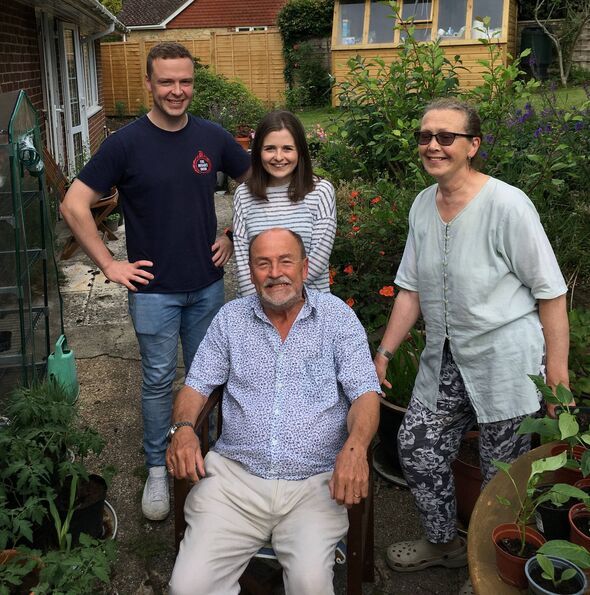

A "loving" husband and father-of-three died just five hours after paramedics missed crucial signs of sepsis and failed to rush him to hospital. Steve Holbrook-Sishton, 67, developed sepsis symptoms in October 2021 after catching COVID.
The former teacher and college tutor's wife, Jan Holbrook, 70, called the NHS 111 helpline as his condition deteriorated. An ambulance crew arrived three hours later and spent 60 minutes checking him over before departing, failing to recognise sepsis symptoms despite clear warning signs. After his symptoms worsened further, Ms Holbrook rang 999.

She was told an ambulance would be at their home in Storrington, West Sussex, within 20 minutes.
However it turned up more than two hours behind schedule and by that time, Mr Holbrook-Sishton had already died.
"I knew something wasn't right but when the first ambulance crew left, I don't think Steve had been fully assessed and we weren't given any advice," said Jan.

"When the second crew finally arrived I just said 'you're too late, he's already dead'. That moment will stay with me forever.
"Steve was a loving husband, an incredible dad, and the kindest soul you could ever meet.
He was the unique presence that held our family together.
"Watching him slip away, knowing something was horribly wrong but feeling powerless, was the most terrible experience of my life.
"The pain of losing Steve remains as raw now approaching four years on as it did the day he died.
"The hardest thing to try and come to terms with is knowing that he might still be here if he'd received the care he needed and deserved."
Mr Holbrook-Sishton had a high fever and breathing difficulties before developing further symptoms.
He tested positive for COVID 10 days after receiving his third booster jab and started experiencing confusion and poor urine output.
After his death, Ms Holbrook sought legal advice from Irwin Mitchell to look into her husband's care.
South East Coast Ambulance Service NHS Trust acknowledged a breach of duty linked to Mr Holbrook-Sishton's death.
The Trust admitted had he been rushed to hospital and received timely care within two hours, he would not have died on the day he did.
In a letter to Ms Holbrook, Simon Welder, Ambulance Trust's chief executive, expressed regret for the "mismanagement".
"Words cannot express how deeply sorry we are," he said.
"This is not the standard of care the Trust strive to provide and I am truly sorry for the Trust's failings."
Irwin Mitchell and the Ambulance Trust are currently negotiating a settlement for Mr Holbrook-Sishton's bereaved family, in relation to his death.
Laura Hayes-Payne, expert medical negligence lawyer at Irwin Mitchell representing Ms Holbrook, said: "The admitted failings in Steve's care are deeply concerning and highlight the devastating consequences of when sepsis isn't recognised.
"We and Jan firmly believe that Steve's symptoms should have prompted an urgent admission to hospital, and once there, he would have received the life-saving treatment he needed.
"While we welcome the Ambulance Trust's admission and apology, it's vital that lessons are learned from Steve's case to ensure other families don't suffer like Jan and her family have.
"Sepsis is a medical emergency and early detection is vital to saving lives."
Signs of sepsis include slurred speech, confusion, extreme shivering and muscle pain, passing no urine in a day, severe breathlessness and mottled or discoloured skin.
-
US Jury will look at whether Amazon tricked customers into joining Prime

-
US President Donald Trump to meet Pakistan PM Sharif

-
13-Year-Old Afghan Boy 'Survives' 2-Hour Kabul-Delhi Flight Journey In Landing Gear

-
What Happens If You Keep a Fast for All 9 Days Without Break

-
7 foods that trigger inflammation daily and what to eat instead
